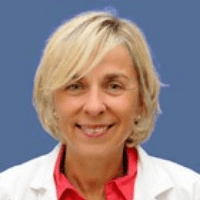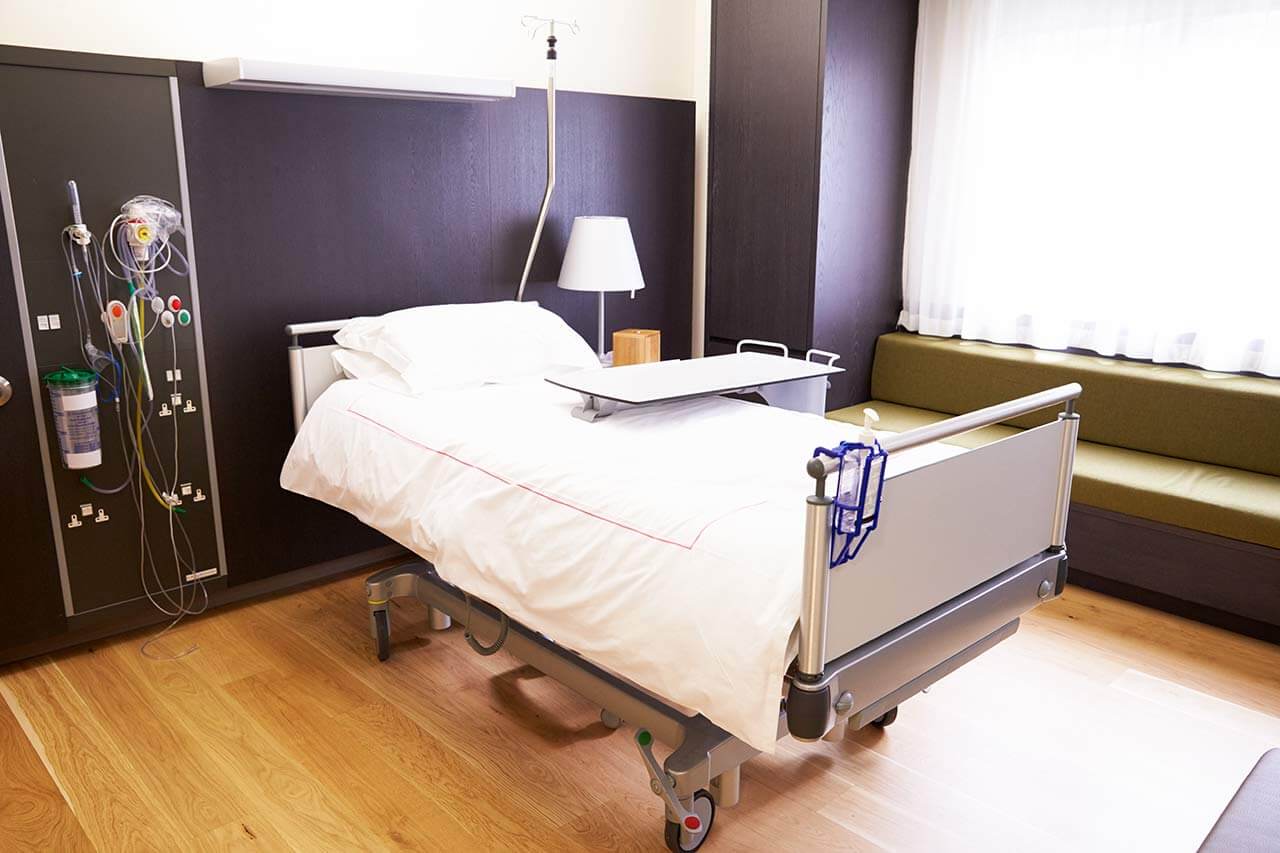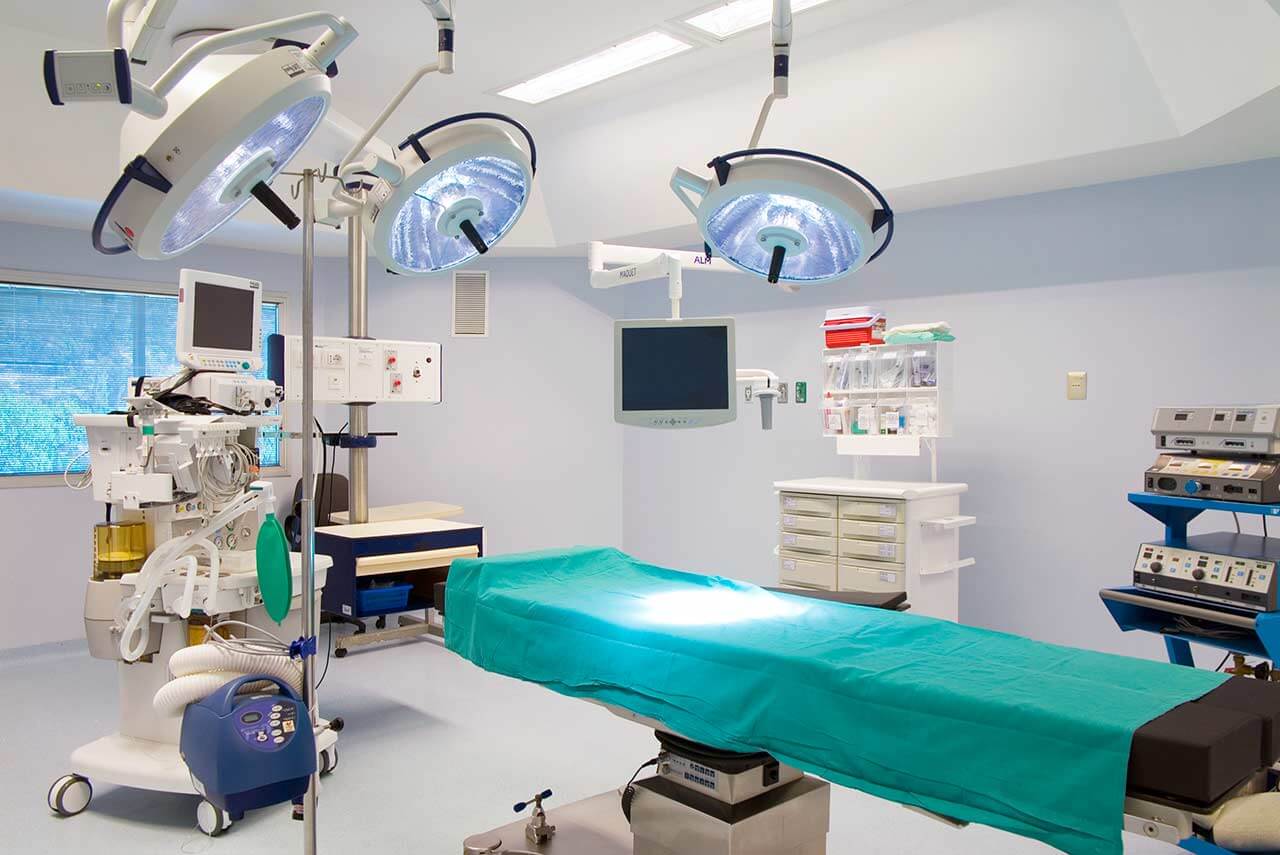
The program includes:
- Initial presentation in the clinic
- clinical history taking
- physical examination
- ophthalmologic examination:
- slit-lamp examination
- optical coherence tomography OCT
- pupil function tests
- ocular motility test
- ophthalmoscopy
- perimetry (visual field test)
- computer perimetry
- visometry (without correction and with correction)
- keratometry
- pachymetry
- refractometry (objective, subjective, cycloplegic)
- autorefractometry
- non-contact tonometer
- biomicroscopy
- fluorescein angiography
- photokeratoscopy
- laser doppler retinal vessels
- electron microscopy of retinal capillaries
- nursing services
- consultation of related specialists
- treatment by chief physician and all leading experts
- explanation of individual treatment plan
Required documents
- Medical records
- Optical coherence tomography (if available)
Service
You may also book:
 BookingHealth Price from:
BookingHealth Price from:
About the department
The Department of Adult and Pediatric Ophthalmology at the Tel Aviv Sourasky Medical Center provides the highly accurate diagnostics and effective treatment of the full range of diseases of the eye and its appendages in patients of all age groups. It offers an inpatient treatment, outpatient medical care and emergency care. The department’s successful clinical practice is based on the use of cutting-edge medical equipment, innovative treatment methods, as well as on the exceptional professionalism of doctors who have long experience and internships in the best clinics in America and Europe. The Chief Physician of the department is Prof. Dr. med. Anat Loewenstein.
The department carries out specialized diagnostic imaging examinations. The most common of them include optical coherence tomography, ultrasound examination of the eye, visual field testing, as well as angiogram for the assessment of blood flow in the retinal vessels. The above examinations are the basis for provision of the most accurate diagnostics and selection of the appropriate treatment in glaucoma, diseases of the central or peripheral part of the retina, diseases of the eyelids and optic nerve.
The inpatient treatment in the department includes preoperative preparation, surgical interventions, postoperative monitoring, emergency care for eye injuries, as well as planned operations. Emergency care is provided around the clock. The emergency care specialists mostly have to deal with the treatment of traumatic eye injuries, severe eye infections, removal of foreign objects, treatment of chemical burns and sudden vision loss.
The department's ophthalmologists also offer consultations on such medical issues as headaches (which can be caused by increased intracranial pressure), visual loss due to neurological disorders and facial trauma, including eye socket fractures.
The department specializes in the diagnostics and treatment of the following ophthalmic diseases:
- Retinal and vitreous disorders
- Cataract
- Eye diseases and strabismus in children
- Corneal and anterior eye diseases
- Glaucoma
- Neuro-ophthalmological diseases
- Inflammatory eye diseases
- Diseases of the eyelids, lacrimal duct and orbit (oculoplastics)
- Poor vision
- Other pathologies
The department’s range of medical services includes:
- Intravitreal injections for retinal diseases
- Retinal surgery
- Modern corneal transplantation surgery
- Trabeculectomy for glaucoma treatment
- Strabismus correction surgery
- Pterygium removal surgery to remove benign conjunctival neoplasms
- Surgery to correct upper eyelid ptosis
- Cataract surgery
- Plastic eyelid surgery
- Orbital surgery
- Surgery to treat eyelid cysts
- Other treatment methods
Curriculum vitae
Education
- Medical School, Hebrew University, Jerusalem, Israel.
Continuing Education
- Wilmer Eye Institute (Vitreoretina), Johns Hopkins University Hospital, Baltimore, USA.
Clinical Experience
- Senior Ophthalmologist, Specialist in Vitreoretinal Diseases and Surgery.
Academic Experience
- Vice Dean, Sackler Faculty of Medicine, Tel Aviv University, Israel.
- Full Professor of Ophthalmology, Tel Aviv University, Israel.
- Health Administration, Recanati School of Business Administration, Tel Aviv University, Israel.
Conference Participation
- More than 200 presentations at scientific meetings and lectures as invited professor.
Memberships in Professional Societies
- Executive Positions
- Secretary General of the Euretina Board, European Society of Ophthalmology.
- Macula Society (since 2012, International Representative to the Executive Board).
- National Council for Surgery, Anaesthetics and Intensive Care.
- Chair Academia Ophthalmologica Internationalis.
- Memberships
- Association for Clinical Research.
- Club Jules Gonin.
- Retina Society.
- Israeli Medical Association.
- Israeli Ophthalmological Society.
- Israeli Society for Research.
- Association for Research in Vision and Ophthalmology.
- American Academy of Ophthalmology.
- American Society of Retina Specialists.
Photo of the doctor: (c) Tel Aviv Sourasky Medical Center
About hospital
The Tel Aviv Sourasky Medical Center is the second largest and one of the most advanced healthcare and research facilities in Israel. It began its work in 1961, but it is still popular among the local population and attracts thousands of international patients.
The multidisciplinary medical center covers an area of 150,000 m². It has 60 departments and institutes with 1300 beds. The hospital annually provides its highly professional services to more than 1,5 million patients. In addition, the hospital enjoys prestige among doctors, many of whom want to have an internship and work here.
The medical center employs more than 6,400 people, among them more than 1,100 doctors, 1,760 nurses, 850 medical laboratory assistants, technical and other employees. The medical staff successfully combines clinical and research activities. The hospital annually conducts clinical trials aimed at the the development of new diagnostic and treatment methods.
Structurally, the medical facility is divided into four main hospitals. These include the General Hospital, the Rehabilitation Hospital, the Lis Maternity and Women's Hospital and the Dana-Dwek Children's Hospital.
The medical center is focused on individualized treatment. With adherence to the international standards of service, the specialists take into account the needs of each patient, his age and a specific clinical case. The medical center strives to provide treatment in a friendly and respectful atmosphere, with an empathic attitude to each patient.
Photo: (c) depositphotos
Accommodation in hospital
Patients rooms
The patients of the Tel Aviv Sourasky Medical Center live in comfortable rooms equipped with all necessary amenities. The standard room includes an automatically adjustable bed, a bedside table, a wardrobe for storing clothes. Also, each room has an ensuite bathroom with shower and toilet.
Meals and Menus
The medical center offers three meals a day: breakfast, lunch and dinner. For lunch, the patients have a choice of daily menus. If for some reason you do not eat all foods, you will be offered an individual menu. Please inform the medical staff about your food preferences prior to treatment.





